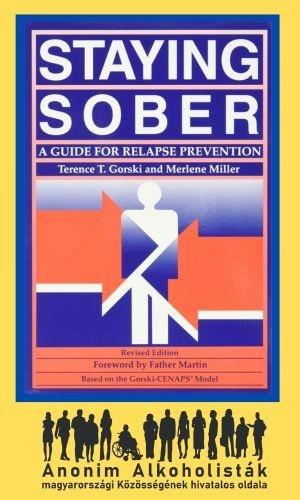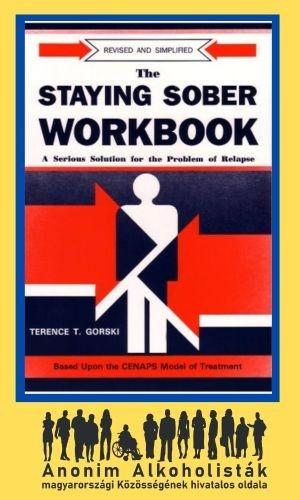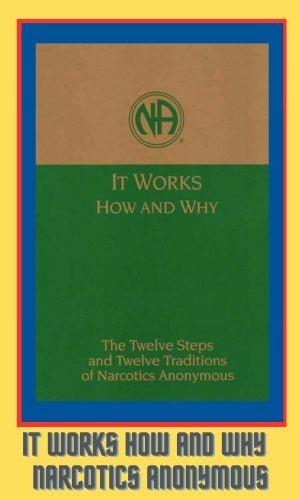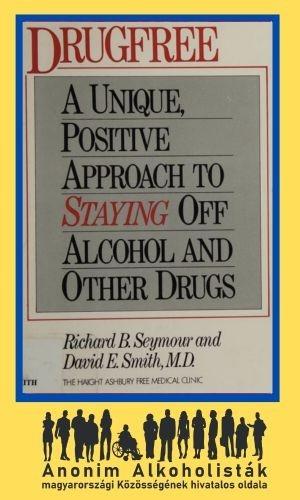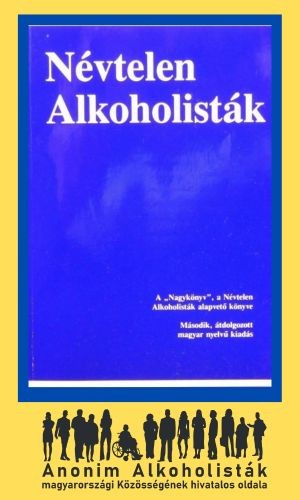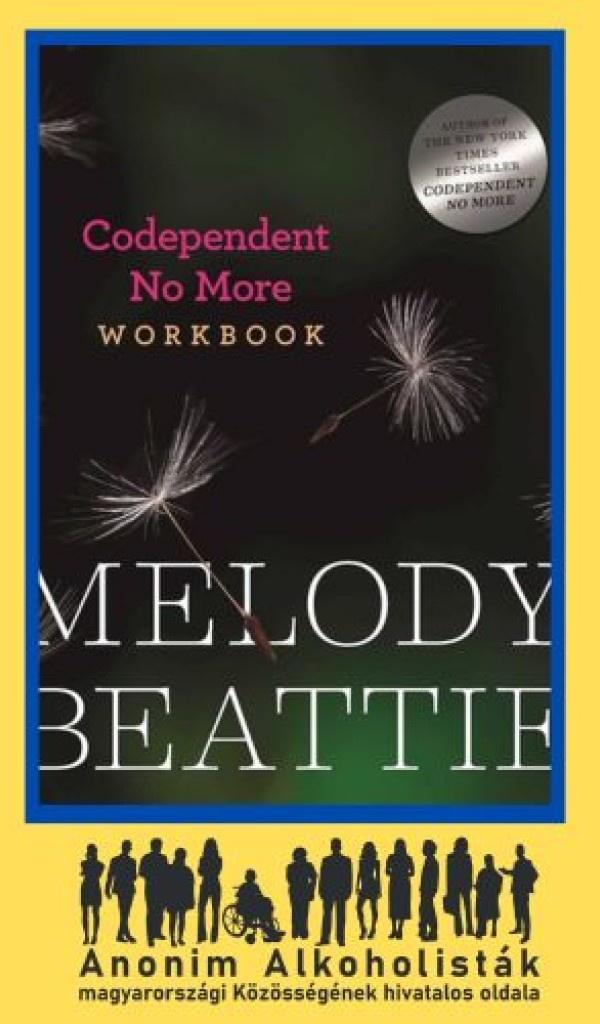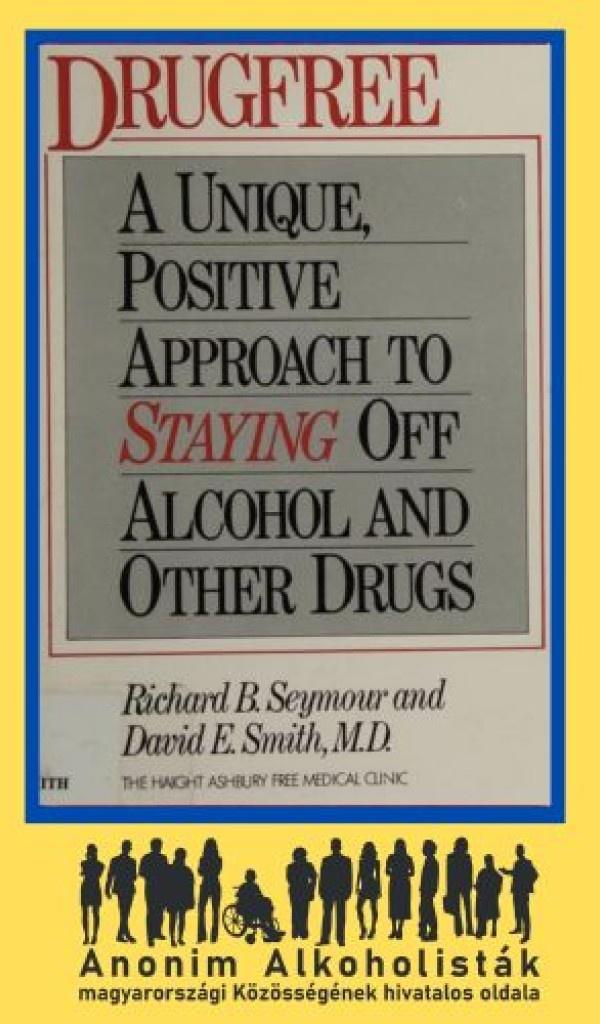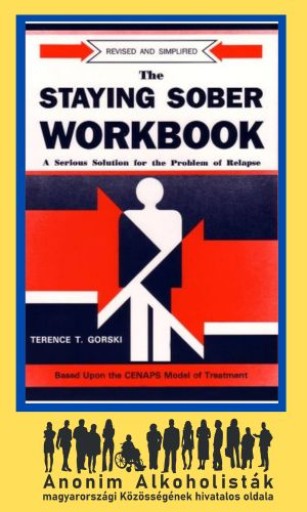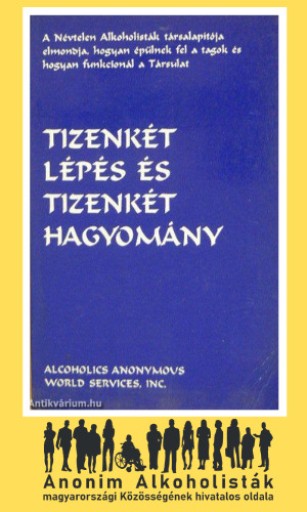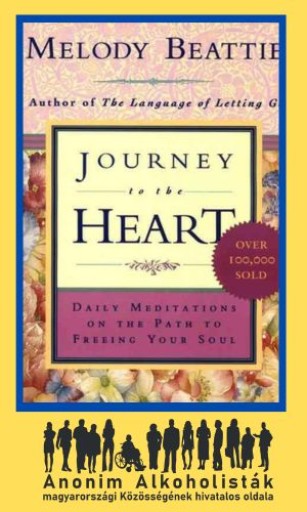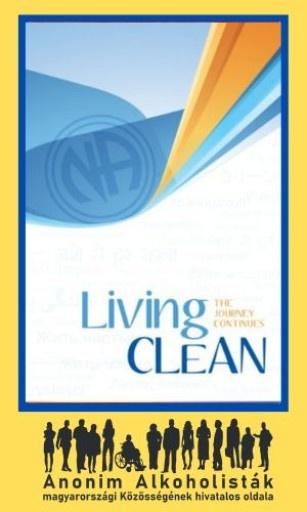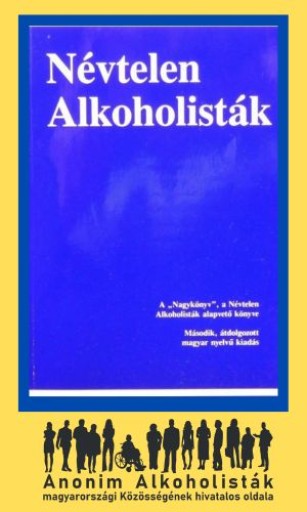The purpose of this booklet is to explain to the relevant professionals how AA works.
Although the AA programme is mainly based on alcoholics sharing their
their experiences, their strength and their hope in their recovery, the recovery process is very much
individual and adapted to the needs of its members. Therefore the programme is described here by a member,
as he sees it. Yet it reflects the thinking of the Society, because the AA General
Approved by the Servants' Conference.
The text is a lecture given by the author to an audience of students of alcoholism therapy at a famous university.
AA Wolrd Services is grateful to him for allowing
the publication of his presentation.
Allow me to read out my presentation this evening. Alcoholics Anonymous
I have given several speeches as a member of the AA or its derivatives
organisations, Al-Anon and Alateen. I participated in a therapy, and the
I was the subject of therapy. Therefore, the more subjective my presentation was, the more
managed. Tonight I was asked to talk about therapy, and the difference is obvious. It
I see that I have to be as objective as I can, and therefore it was necessary to
think about and prepare for the performance. How objective can someone be in a
organisation that helped save his life and sanity is another matter.
In any case, I will try.
My task is harder than it seems at first sight because - as AA members already know -
there is no official policy in our company that you can follow with peace of mind.
may I suggest. There is no "official line", no dogma or doctrine that members accept,
there is no "faith" to be cited. Even if our living co-founder himself were standing here
In front of you tonight, he would just talk about how he sees things. I myself
I can see that freedom from rigid interpretation is one of the most effective and
most healing principle. I will explain this statement in more detail later, for now
it is too early to burden you with the details. The truth is that whatever I say today, it's
is strictly my personal opinion. Therefore, I could give this title to what I have to say: "the
Alcoholics Anonymous from the perspective of a member". And as all this is done by a university
all I ask is that, in the spirit of unbiased truth-seeking.
listen to.
Why am I saying all this? I think you already know. One of the most important AA
tradition says: "Our relationship with the general public is not based on publicity, but on
is based on attractiveness". I am not trying to "sell" AA - you should be a future therapist,
or a current alcoholic. Performance of AA compared to other recovery methods
speaks for itself, and I'm sure you've heard of AA
effectiveness in this auditorium.
If one method of approaching the problem produces better and more symptomatic results,
than the others, I think it is logical to assume that this method has special characteristics
are what distinguish it from the rest, and what - as the basis of its success
are. Is this true of Alcoholics Anonymous? And if it is true, what does this
specificity?
The earliest way to find out is to read one of the definitions of Alcoholics Anonymous. This may be
can be considered the "official" definition, and is often read out at AA meetings:
"Alcoholics Anonymous is an association of men and women who share a common
their experiences, their strengths and their hope that they can solve their common problem,
and help others recover from alcoholism.
The only condition for AA membership is the desire to stop drinking. No membership fee. A
is supported by voluntary donations from its members. AA is not bound to any
sect, denomination, policy, organisation or institution; does not wish to participate in
in any debate, neither supporting nor opposing any cause. Our primary goal is to
stay sober and help other alcoholics achieve sobriety."
This definition is a bit long indeed, and like other definitions today
around the world, successfully sidesteps the question of what it is that defines
what not to do.
Let's see if we can go beyond the AA charter ("bible"), Alcoholics Anonymous, and the AA "bible".
book, published in 1939 and written by Bill W., using the
the help and advice of the first hundred alcoholics who have managed a year of sobriety
show up. In Chapter 5, entitled "How it works", we find these words:
"Our feature on the alcoholic, the agnostic chapter and our sobering up
our personal experiences before and after the event make three things clear:
a) We are alcoholics and we are unable to control our lives.
b) Probably no human power can rid us of our alcoholism.
c) God can and will do it if we seek Him."
These ideas, while more circumscribed, are certainly not exclusive to Alcoholics Anonymous.
characteristics. Many times since the beginning of time, man has been forced to his knees to admit
inertia. Likewise, since the beginning of time, there have been many times when a supernatural
Being who has delivered him from his destiny, even if he has performed certain rites and certain
adapted to the rules. Obviously there is nothing new or special here, yet the
the three "ideas" you have just heard are the basis of the AA philosophy. On the basis of the above
so what is the unique nature of AA?
I only found the first sentence of the first definition that tells me what it is
AA. Listen again:
"Alcoholics Anonymous is an association of men and women who share a common
their experience, their strength and their hope to solve their common problem and
can help others recover from alcoholism."
Is there anything completely new here? The experience of alcoholics is essentially the same. Others
circumstances may change, but the point is always the same: the human personality is constantly
degradation. And the strength and hope of these people (men and women) is growing day by day.
varies from day to day in both intensity and content. What is the only constant factor?
What is unique to AA?
It is possible that the answer lies in the way this strength and hope is shared
with each other; and, more importantly, who shares it? Therein lies the secret - like the
most secrets - how did it all start?
Long before the AA definition was born, when there was no book or
Steps, no Traditions, one night, "33 years" ago, something happened in the Ohio State
in the city of Akron. On the night Bill W., alone in a strange city, fearful
horrified, he concluded that there was only one way to get his bitterly-won
maintain your sanity. You need to talk to another alcoholic and try to help
him. To our knowledge, this is the first case where an alcoholic has knowingly and deliberately
to another alcoholic, not to drink with him, but to get sober together.
stay.
Bill W. and Doctor Bob's memorable meeting the next evening may provide the answer to the question
rhetorical question that Christ asked two thousand years ago. "If the blind lead the blind, no
will they both fall into a ditch?" And in 1935 - strangely enough - the answer was "No!". But as for the
that night was perhaps not contrary to the spirit of Christ. Perhaps one was not
as blind as the other. He may have been able to vaguely see shapes and forms and describe the
another who lived in total darkness.
Who they were talking to that night is more important than what they were talking about.
What experience does the average alcoholic have of this before they go about their life
first AA meeting? Have you ever asked for help from others or had others help you?
they offered to help him. Sometimes they even forced help.
But the helpers were always superior beings: spouse, parents, doctor, employer, priest,
a pastor, a rabbi, a Hindu holy man, a judge, a policeman, even a barman. The alcoholic
guilt, and the moral superiority of the helper is always felt, even if implicitly.
These authority figures always have a disapproving and disciplining tone.
It was thirty-three years ago that I first spoke to an alcoholic in a different tone
they spoke. Instead of hearing it all the time: "You have to do this!", they said:
"I did this."
It is my personal conviction that the basic need of every human being - from the cradle to the
to the grave - to find at least one other human being before whom, in your naked reality.
can show himself, without any pretense or defence; whom he can trust not to
to harm him, because the other one had also completely disrobed himself in front of him. The whole life-long
is the first AA meeting.
An early recognition of AA - that alcoholism is a disease - is no longer disputed. While
the debate - what is the essence of this disease and what is the cure - may never be
end, no sensible person would doubt the fact of the disease. Nevertheless, it is a huge
the effect of an alcoholic hearing this from another alcoholic: "I realised I was sick
and I've found a way to overcome my illness." These words
fill the guilty, ashamed alcoholic with hope. This idea
is an immediate relief for some alcoholics, and for others at least
the hope that one day they will be absolved.
The way I see it, the alcoholic, when he first meets AA, realizes that he's invited
to share their recovery experiences with others. The operative word here is
"sharing". Whether you accept this invitation immediately or later is not important. The
it is important that the invitation has been made and is still in force; and the invitation is an equal partner,
not to a beggar. Whatever your first reaction, even for the sickest alcoholic
it's hard to refuse understanding, equal treatment and a way out that's already been tried and tested
offered to him. He is also made to feel that he has the right to do so; indeed, that he has earned it simply by
that he is an alcoholic.
If the alcoholic accepts this invitation, he will find himself confronted with what AA
second characteristic of AA: AA is primarily a remedy for symptoms. Some
may be surprised to learn that 30 years ago, when the idea was still quite
revolutionary, Alcoholics Anonymous has consistently stressed that the
alcoholism is, in AA's own words, "a symptom of deeper problems."
However, AA is also aware that even the best diagnosis is useless if the patient
dies. Autopsies are of no use to any dead person. Sooner or later, AA will know
convince newcomers that total abstinence is the answer. In AA, the cart
yes, he goes before the horse. The first step is always the First Step. No new AA members
may doubt that recovery can only begin with this determination: 'I will keep away
myself from the first glass." You will also soon learn that no one else can make it
the decision instead. He also realises that if he makes this decision, no one knows, and no one
will force him to make it happen. In AA, the decision is the alcoholic's, and always has been
will remain his.
The desire and the ability to make that choice, I think, often go hand in hand.
with the third characteristic of AA: the instinctive, compassionate, but not
with the indulgent understanding that the alcoholic experiences from others. The "teraputas" of AA
earned a doctorate in four things that drive the alcoholic's life: pretending,
self-deception, evasion and self-pity. That's why we don't ask him what
think. We tell him what he's thinking. No one expects to be caught in a lie.
We tell him in advance what he wants to lie about. In the end, he starts to pick up some kind of honesty
by noticing the lack of honesty in yourself. It makes no sense to
trying to trick those who already know the game.
There's also a fourth factor in AA that I don't think exists anywhere else
we find: the ever-present, inexhaustible, enthusiastic willingness of the recovered alcoholic to,
to talk about alcoholism - from the front, from the back; from the inside, from the outside; "how and how".
Without the newcomer knowing the allure of alcohol, his thirst, his desire, even his need for a drink
are drowned to death in it. I find it very appropriate that those who make sick with their lips
have made themselves, now they are using it to heal.
Finally, the AA method of education is the exact opposite of other methods of education. From
new member is not asked to learn a new set of values, but to forget them,
according to which he lived until then. We encourage you not so much to set new goals as to give up old ones.
For me, this is one of the most significant sentences in the book Alcoholics Anonymous: "Some people
we tried to stick to our earlier ideas, but we got nowhere until we had a full
to the extent that we have not given up." The stubbornness with which some - not even active
alcoholics - clinging to their old opinions, beliefs and convictions, which
they came to us, almost unbelievably strong. One of the main aims of AA therapy is to help the alcoholic,
to recognise these ideas and free himself from their death grip.
Where do these specific factors operate, you ask? Where are they? Perhaps the answer is that such and
at such and such a meeting, at such and such an address, at such and such a time. No. The answer is that this particular
therapy kicks in whenever two alcoholics meet: at home, at lunch, on the street,
in the car, on the sidewalk, on the porch, and - oh my God - on the phone. There is only one requirement:
one of them must be sober. But even this is not an absolute necessity. I myself live
I'm an example of how two drunks, once they've experienced AA, can
each other to talk about the return.
Now, you may ask, what does all this imply? I must admit that
the question goes to the heart of the matter, and I would like the answer to be as simple as
Question. In fact, there is an easy answer. Perhaps the answer is the saying that is often
you hear in AA circles, "Miracles happen in AA." No doubt, these words would get you out
me out of the lark - easy and simple. But I don't think we're much smarter,
than when the question was asked.
There is a common view in AA that if a newcomer simply goes to meetings,
something will eventually "stick." The assumption is that this "something" is the so-called AA
the wonder of. I have no doubt that many in AA accept this statement literally. The years
I have experienced this. They attend meetings faithfully, waiting patiently for something to "come to them".
stick." The humour is that "something" does stick to them. They sit there - for weeks,
for months, years - until slowly, mental, spiritual and physical rigor mortis sets in
at their place.
I believe that the real "AA miracle", the "something" that should stick, is none other than
the alcoholic's willingness to act. Why he will finally be willing to do this, more on that later
I say. For now, let's see what he is willing to do.
AA is also called an "action programme". In fact, one of the most commonly used
this is our aphorism: "Action is the magic word." When the new member hears this, they invariably think of things like.
think: going to meetings, passing on the AA message to other alcoholics, speaking at
attendance at meetings, committee meetings - usually a "hustle and bustle" without a break. Let's see,
is this really the thing?
I quote chapter five of Alcoholics Anonymous:
"Here are the Steps we have taken and propose as a recovery programme:
1. We have admitted that we are powerless over alcohol - that our lives are out of control.
2. We are convinced that a Power greater than ourselves can restore our spiritual health.
3. We have decided to entrust our will and our lives to the providence of God, according to our own understanding.
4. We have taken a thorough and courageous moral inventory of ourselves.
5. We have confessed to God, to ourselves and to a fellow human being the true nature of our faults.
6. We were fully prepared for God to deliver us from our character defects.
7. We humbly asked Him to remove our disabilities.
8. We have taken stock of all those we have ever harmed and have been ready to make reparations to all of them.
9. We have made direct reparations to all those we could, unless it would have been harmful to them or others.
10. We continued to introspect and immediately admitted when we found ourselves at fault.
11. we sought to deepen our conscious relationship with God, according to our own understanding, through prayer and meditation, asking for the recognition of his will for us and the power to carry it out.
12.As a result of following these steps, we have experienced a spiritual awakening, have tried to pass on this message to other alcoholics, and have tried to apply these principles in every aspect of our lives."
What you have just heard is the famous Twelve Steps of AA. It has been described in many different ways by members:
from the "steps to happiness" to the "God-wit".
Now I will ask you some questions that may help you to understand the
The impact of the Twelve Steps on the lives of thousands of alcoholics, and their proven effectiveness in solving the problem of alcoholism.
Are you surprised - as I am - that there is nothing physical in this programme - no (fibrous) vegetables, no vitamins, no daily exercise? I think this is because in AA the alcoholic believes from the beginning that the physical manifestations of the disease are not very important if they are not accompanied by severe mental deterioration. If the physical symptoms of alcoholism
allergy would have been the main factor, I believe that AA would never have come into existence because it would not
would have been necessary. There were times when I was allergic to certain foods: strawberries, but never
I didn't join the Anonymous Earthquakes; I had to eat pork, but I didn't have to
I've changed my mind to refrain from it.
So if alcoholism is primarily a mental illness that requires mental healing, it is not a
convince you - as it does me - that there is no spiritual meaning in this programme
nothing new, nothing surprisingly unique or special. These ideas have been with us since the
man came out of the cave. We have had many of them in primitive society. All
in the life of an alcoholic, there was a moment in his or her life when his or her own behaviour
however irreligious and amoral it may have become.
It would be utter nonsense to think that an alcoholic who shows up in AA, who has been
unknown Twelve Steps suddenly transforms him into an unprincipled, uncouth barbarian
was until then.
Again, we are faced with the fact that AA therapy has a new effect without it,
to offer something substantially new. So what is the point?
I think it's not the content of the Twelve Steps, but the way in which that content is
in the Twelve Steps. It does not set rules that, if broken.
we get drunk, but reports on what we have done.
I have often wondered how the fate of humanity would have turned out if the Ten Commandments
would have received it in a similar form. Raw and prohibit commands instead of so: "We honoured our father
and our mother." "We remembered to keep the Lord's day holy." "Against our half-friend
we did not bear false witness."
In AA, the narrative is clear and unambiguous. "Here are the steps we have taken" -
say those who are ahead of us. The newcomer finally realises that he too must
take these Steps before you have the right to report them. And in the atmosphere where the
this topic: "What have I done" and "What am I thinking", even a neurosis sufferer can't stop,
not to take action. In an organisation whose members are secretly
convinced that they are special, no neurotic is content with just being
see what others are doing.
Whether accidental, intentional or supernatural
through guidance, the Twelve Steps are formulated and presented in a way that
an alcoholic can ignore it completely, take it lightly, or embrace it wholeheartedly.
In any case, he can only report on what he has done himself.
Until he does, he knows he's a guest, not a member of AA, and that situation is ultimately
will be intolerable for the alcoholic. You must take at least some steps or leave
must. In my opinion, this is the answer to why we end up sticking something even more on hold
inactive, sometimes hostile member who takes a position. This is also the answer to
why this is happening.
The Twelve Steps report on what has been done, not a list of commands to follow.
It thus provides the basis for the fact that there is no official doctrine in AA. For a member
nor do we say that you are obliged to take these Steps, otherwise you will fall back
alcoholism. Anyone who says they are a member of AA is a member of AA, regardless of
whether you take the steps carelessly or with heart and soul. All members, including those who
loudly proclaim: "I have stayed sober for X years (only) through the First and Twelfth Steps
by practising." Even those who encourage you to "Act, don't analyse!" The first group blindly
ignores the introduction of the Twelfth Step amendment: 'The steps to follow
we experienced a spiritual awakening as a result." Others say it's a weak footed breed
sobriety, but he's content with that. Those in the latter group seem to be ignored
they leave us with the encouragement not to analyse, and this is the result of their own analysis.
As to you - as therapists of the present or the future - and not as alcoholics
I don't want to dwell on the Steps. Yet there are Steps to take
certain aspects that should not be ignored, because I am sure
confident that they will resurface again in future work.
The first, sometimes crudely referred to as "God-juice." As AA is becoming
becomes more international and moves out of the Judeo-Christian moral system of American society,
where it was born, and as more and more people try it, both here and abroad;
it is inevitable that this fundamental principle of AA will not be subjected to increasingly critical
investigation and not to be questioned by more and more people.
The founders of AA obviously felt that alcoholics needed a Power greater than themselves. Yet, whether by accident, design, or under divine direction, they have wisely refrained from defining this divine Power in any detail. Although AA literature has used and still uses the name to describe a personal deity, it is not at all necessary to believe in this concept. In fact, the longer a member is in AA, the better,
the less important the nature of this Force is to him. It seems to me that most members I know are, over the years, looking less and less for the God they understand and more and more for the God who understands us.
The founders of AA sought to explain their use of the terms "spiritual experience" and "spiritual awakening" precisely as meaning a change in personality that they believed was necessary for lasting sobriety. In the Appendix of the book Alcoholics Anonymous we find the following words:
"Our rapidly growing membership, which now numbers in the thousands of alcoholics, often
such transformations do occur, but they are by no means common. Our experiences and
the majority of our experiences are based on the "educational version" described by psychologist William James
because it is the result of a slow evolutionary process... Finally (the new
member) will also notice that he has undergone a profound change in his response to life, and
that he could hardly have achieved this change alone."
In the Twelve Traditions, AA states that "there is only one absolute authority - the
loving God as He is manifested in the spirit of our groups." Yet I would like to invite you to
their attention to the fact that the groups are made up of alcoholics, and what exactly we would define them as,
what absolute authority is, even the most militant atheist can have been sober for years.
It seems that, in relation to the Fourth and Fifth Steps, some accuse the
AA that he is involved in a controversy. The Steps say:
We took a thorough and courageous moral inventory of ourselves.
We have confessed to God, to ourselves and to a fellow human being the true nature of our failures.
It seems that our body is telling us that alcoholism, being a disease, is
does not entail moral guilt, and on the other hand, advises its members to avoid
salvation requires a thorough and courageous reckoning between God and a
before our fellow human beings.
I myself feel that this apparent contradiction in AA
stems from the experience of its founders. I think they found - as we have since found - that
no matter how much we tell the newcomer that alcoholism is a disease, he still feels guilty
yourself. He cannot turn a blind eye to the moral consequences of his drinking: the damage he has done
the shame and degradation he brought upon himself. A
"habitual" guilt - I use the word "habitual" deliberately - and the stubborn and
unrepentant attachment to this guilt is the alcoholic's most persistent obsession
include.
Most persistent, because it has been present from the beginning, and most
it is the last thing the alcoholic gets rid of. But you need to get free to
a fundamental change in the alcoholic's behaviour - both towards himself and the world
happen. That is why I believe that the founders of AA learned from their own experience that
the alcoholic must be given the "usual" way to escape his "usual" guilt
to get rid of.
I hope it is now clear that the AA's action programme is not a feverish chase, as the
newcomers often think, not even the relentless transmission of the message to other
for alcoholics. Rather, it is an action that goes to the very core of one's feelings and values.
is based on. There are only three Steps - the Fifth, the Ninth and the Twelfth
about the others. The other nine deal with the inner life of the alcoholic. Yet it was detected,
that the ultimate result is that the alcoholic "turns outward" - his attention is not on himself,
but is directed at others.
An oft-quoted quote from Alcoholics Anonymous: "Self-centredness...is our problem.
the root." One of the fundamental changes in the personality of the recovering alcoholic is that
slowly, hesitantly, timidly, but persistently, he begins to make himself available to others. From
alcoholics are big "beggars". "Give me a chance..., give me another chance..., show me
understanding..., show love." In AA, these "shoppers" will be the ones who will become the
give most selflessly, and some do not want anything in return.
The house that AA helps to build is different for everyone, because everyone has their own
architect. For many alcoholics, joining AA is like coming home
to the house of his fathers and conversion to the faith of his fathers - just as it happened with the prodigal son.
For others, it's a never-ending adventure into a world where
they never dreamed of. It does not matter which group they are placed in. The important thing is that the
house built by the AA is big enough to accommodate the rebel and the conformist; the
the radical and the conservative; the doubter and the believer.
From official beliefs,
freedom from rules, commandments and rigid definitions and the whole
flexibility of the structure - the factors we have already seen contribute to this
to the incredible but fortunate outcome.
I think one of the most important, though rarely noticed, principles in AA is that the recovering
alcoholic should always maintain their independence. It is precisely the factors listed here that lead to
that the alcoholic will find someone else at any given time and in any given situation who will not
agrees. Therefore, sooner or later, the recovering alcoholic in AA is forced to
to think. Sooner or later you will find yourself like the tortoise, who can only
make progress if you stick your head out. / pun: in English, "sticking your head out" means taking a risk. / Individual members
the flexibility of the AA principles, which can be interpreted in different ways, is ultimately
forces the alcoholic to use himself as a reference point for his actions. This is
in turn, it will make you responsible for your own actions. And I think it's nothing more than
emotional maturity itself.
It would be wonderful if I could end by leaving you with nothing but shiny, shiny principles,
that speak for themselves. If I did, I would be doing you a disservice as
for future therapists. For all AA members, the day will come - some admit it, others
they hide - when a nagging, disturbing question arises. He sometimes puts it like this:
"Is AA enough?" Other times, there is a more fatal connotation to the question: 'AA is everything (that
can I wait)? Again, at other times, the question arises, "What's next, man, what's next?
is next?"
There may come a day when such a struggling soul will come to you and say things like.
lists:
"AA is a fellowship of sick people, and I feel that it will be a disservice to me if I continue to be one of them.
I'm staying."
"AA is always about the new. The old member has no opportunity to develop further."
"AA is really a subculture and isolates you from the mainstream of society."
Why did I list them so lightly? Because I myself have formulated these
thoughts, and over the years those who came before me; and they echoed
will be those who follow me.
I urge you not to underestimate such things when you hear them. That's why you're so constantly
these are recurring thoughts, because there is some truth in them.
These thoughts fill AA members with guilt, fear and anxiety. This is
in my opinion, is largely explained by the following simple facts: long before,
to dare to admit these ideas openly to ourselves, AA has many
defender, "All you need is AA." You never get
remember - along with those who hear it - that this exhortation to change pronouns
would be correct: "All I need is AA." This is a personal statement, which
can empower many people, but it can't bother anyone.
Nowhere in AA literature can I find any reference to the rule that many assume,
others proclaim that the recovering or recovering alcoholic's only interest in AA
must be limited to therapy. The truth is that the story of thousands of AA members is exactly that
shows the opposite. I myself have been Catholic all my life - with varying degrees of fervour,
and not always at the same level of virtues. I was also in psychoanalysis for several years when
I've been sober for 11 years. I have never found anything in these two that is mutually
would be mutually exclusive. It seems that the solution lies in the biblical saying: 'everything
has its place and time." If one of you comes to me with an alcohol problem,
I certainly wouldn't ask him if he wanted to come with me to Mass on Sunday. Nor do I
I'd ask if you'd like to see my old analyst.
But I would ask him without hesitation:
"Would you like to come to an AA meeting with me?" In my opinion, the danger is there if the recovered
alcoholic assumes that he has to give up AA if he wants to get to that particular place,
at that particular time. Nothing is further from the truth, nothing is more useless.
Behind the oft-heard call - "You just need AA!" - fear
hiding. Fear that a member may not agree with the belief that AA is the
the only, complete and all-encompassing solution to the alcoholic's ills, fear of,
that the dissenters will be lost along with the other members. I used to be like that
I thought about my religion.
I really stuck with it when I joined AA.
How sad it would have been to hear that I had to give up my faith as an "old idea" and
I have to replace it with something else.
The search for perfection, for the only Perfect Answer, is a characteristic of the neurotic.
man, ever since he was cast out of Paradise, has constantly begged, "Give me
ceremonies; give a cross, a relic, a prayer; just give something, anything, magical and mechanical
formula that I can hold, hold in my hand, say or do - and all
will be fine."
To apply the same unrealistic standard to AA is to commit an injustice
with our community, just as it would be unfair to any other institution. From
true freedom lies in admitting and calmly accepting that there may not be
perfect answer. It is up to each person to find it and share it with others,
which works for him.
All in all, I am convinced that I, and many others, stayed because
in AA, because only there can we relive the experience of our initial recovery. Only
there we can be an active part of the daily efforts of our members, sometimes for good, sometimes for bad,
sometimes less, sometimes better, but always aimed at making today a little better for people
be like yesterday. I can almost hear the voice of the non alcoholic or non AA member:
"but you have to realise that this daily struggle is going on in other organisations."
Of course I can see that. I have been and still am a member of other organisations. But only in AA can I share this struggle with others to the extent and depth that
gives new meaning to my life. As my years in AA go by, everywhere I look, that simple word becomes more and more the key word and lifeblood of my life: "share".
Yet, like all great blessings, this honest sharing, this feeling that one alcoholic has for another, also carries danger. Even if implicitly, it feeds the alcoholic's always latent desire to turn inwards. We cannot replace our self-centredness with a group, however big it may be, because we will only achieve partial recovery.
There will probably always be those in the ranks of AA who, motivated by fear and anger, tend to turn AA into some kind of spiritual ghetto, a coeducational monastery where members hide, lick their wounds, and create childish words about "normals" and "alkies" and point fingers at the "outside" tigers.
The day must come, I believe, when every alcoholic - whether in AA or not - sits down to talk to his enemies. And when he does, he will be surprised to discover that he has no enemies. On the day the recovering alcoholic in AA realizes that the enemy is within him, that the tigers are his creations and hiding in his subconscious self; on that day AA becomes for him what its founders intended it to be: an escape to reality.
It happened in San Francisco shortly after I held a meeting with my own enemies.
I took a short ride on the famous cable car down Powell Street to the Fisherman's Wharf. Something interesting and wonderful happened. The passengers, who had made the trip down the hill with me, got out and, without waiting for the conductor, turned the car around and got back on to drive up. I went with them until the breathtaking view of the Golden Gate came into view.
It made me realise that this event was and I hope always will be for me like AA. It's a simple, squeaky, creaky, rattling, but sturdy vehicle that people love to bits. This wreck caused me and the other passengers to turn around, and we turned around with it, to head back up the hill we came down to the bridge that leads back to normal life.
Today, if I were to find fault with AA, I would say that I have not yet begun to take advantage of all the opportunities that the last seven words of the Twelfth Step hold. "to apply these principles in every aspect of our lives."
It occurred to me recently that when I'm at an AA meeting, I never notice whether I'm sitting next to a white, Catholic, American, French, Mexican, Jewish, Muslim or Hindu; black or brown person. All I know is that I'm with another alcoholic. It also seems significant that I only came to realise our common humanity at the cost of great pain and anguish.
Why should this hard-won understanding and feeling for others be limited to AA? And will what I have learned stay with me forever, not only in AA, but in my life?
in all areas, so that I can take my place in the family of humanity with my head held high again?
Am I able to know there, in the family of God, that it is not a white, Catholic, American, French, Mexican, Jewish, Muslim, Hindu, black or brown, not even an alcoholic, who is sitting next to me, but that I can finally - God help me - give up all warfare and say from the bottom of my heart, "I am sitting next to another human being?"
Gentlemen and Ladies, who would dare to analyse a phenomenon, to draw it or break it down into parts?
a miracle? He's just a stupid man. I hope I wasn't that stupid today. I was just trying to tell you where I have been for the last 16 years and what faith I have come to during my pilgrimage. Next Sunday, in many churches, there will be a reading from the Gospel of Matthew, which describes how John the Baptist suffered in Herod's prison and, hearing of the deeds of his relative Jesus, sent two of his disciples to him with the question, "Are you the one to come, or shall we wait for another?" As usual, Christ did not give a clear answer, but left John to decide the question for himself. He replied to the disciples.
"Go and tell John what you have heard and seen: the blind will see, the lame will walk, the lepers will be cleansed, the deaf will hear, the dead will be raised, and the poor will have the gospel preached to them."
As a child, when I went to religious school, I was taught that the "poor" here means not only the poor in the physical sense, but also the "poor in spirit", those who are tormented by hunger and thirst. I also learned that "gospel" literally means "good news".
More than 16 years ago, four people - my boss, my doctor, my parish priest and my only remaining friend - sometimes alone, sometimes together, labored to maneuver me into AA. If they were to ask me today what I found there, I would say the same thing I say to you:
I can only tell you what I have seen and heard: it seems to me that the blind do see, the lame do walk, the lepers are cleansed, the deaf hear, the dead are raised, and again and again, in the middle of the longest day and the darkest night, the good news is preached to the poor in spirit.
God grant that it will always be so.














